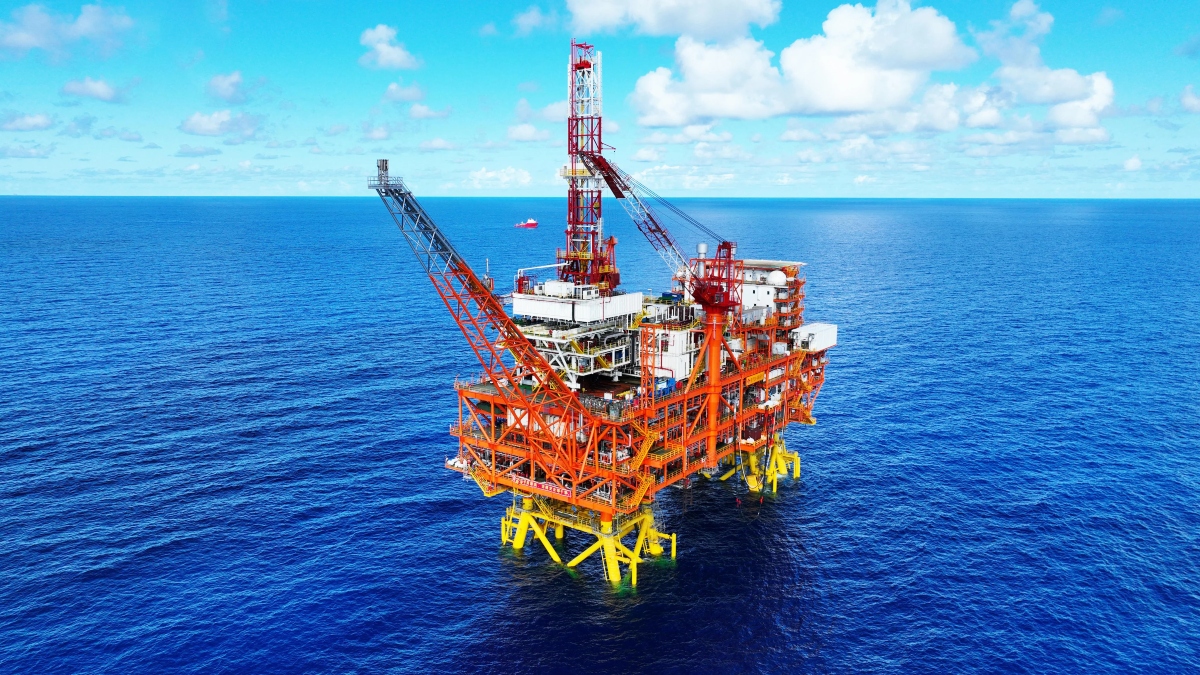A highly significant development for Greece’s energy and geopolitical strategy took place on September 10, with the official submission of a bid by the American giant Chevron, in consortium with Helleniq Energy, for the concession rights to explore and exploit hydrocarbons in the offshore blocks of Southern Crete and the Southern Peloponnese.
This move goes beyond a simple competitive bid: it sends a clear vote of confidence towards Greece — both as an emerging energy hub and as a pillar of stability in the increasingly contested chessboard of the Eastern Mediterranean.
An offer with energy and geopolitical depth
Chevron, one of the world’s foremost energy corporations, already operates successfully in key projects across Egypt, Israel, and Cyprus. Its decision to expand into Greece — a region adjacent to geopolitically sensitive maritime zones— brings multiple strategic advantages:
- Enhancement of national energy security, with promising prospects for the exploitation of domestic reserves
- Elevation of Greece’s profile as an investment destination for global energy players
- Diplomatic reinforcement against Turkish provocations, particularly regarding Turkey’s “Blue Homeland” doctrine and the Turkey-Libya maritime deal
Political and investment vote of confidence
As stated by the Greek Minister of Environment and Energy, Stavros Papastavrou:“This opens a new chapter for the utilization of our country’s offshore energy wealth. Greece is laying solid foundations for energy self-sufficiency and geopolitical strength.”
Chevron’s involvement signals not only recognition of Greece’s energy potential but also of the stable political and institutional environment that encourages long-term investments. At the same time, the collaboration with Helleniq Energy ensures the continuity of national energy strategy and the integration of Greek expertise into this ambitious project.
Countering Turkish influence
Chevron’s strategic entry strengthens Greek claims at a time when:
- Turkey continues to leverage the Turkey-Libya maritime memorandum, attempting to assert de facto presence over Greek maritime zones
- The project for the electricity interconnection between Greece and Cyprus faces delays, benefiting Ankara by isolating Cyprus and avoiding potential energy blockades
Chevron’s participation serves as a counterbalance to these Turkish ambitions, clearly signaling that any challenge to Greek sovereignty risks a confrontation with high-level American interests.
Notably, the block “South Crete II” covers approximately 20%-25% of the area disputed under the Turkey-Libya agreement, making it a focal point of potential energy contention.
Chevron-Helleniq timeline
Chevron’s initial non-binding expression of interest became public in January 2025, via the Greek Hydrocarbon Management Company (EDEYEP). Subsequent acceptance by the Ministry of Environment and Energy led to the official bid submission for four offshore blocks:
- Block A2
- South Peloponnese
- South Crete I
- South Crete II
Together, these cover a total area of 47,000 square kilometers, nearly doubling Greece’s active offshore exploration acreage.
The evaluation process requires submission of four subfolders covering legal, financial, technical, and commercial aspects, with the Evaluation Committee expected to complete the assessment within three to four sessions.
ExxonMobil takes a cautious stance
According to Helleniq Energy CEO, Andreas Siamisis, ExxonMobil — which manages the remaining Crete blocks — is expected to delay a drilling decision until 2027. This leaves Chevron ahead in terms of pace and commitment, injecting new momentum into the exploration landscape.
Greece as a critical player in Europe’s energy architecture
Chevron’s involvement is a lever for Greece’s geopolitical upgrade within Europe and NATO at a time when:
- The EU seeks alternative energy sources to reduce dependency on Russia
- The Eastern Mediterranean emerges as a new energy hotspot
- The US aims to strengthen its strategic presence in the region through economic and investment channels
A paradigm shift with multi-decade implications
This development is not merely a commercial partnership; it is a vote of confidence in Greek sovereignty, stability, and growth potential. Should drilling results prove positive, Greece could hold an energy reserve capable of significantly impacting Europe’s energy strategy.
Chevron has come to stay. Greece appears ready to welcome and harness its potential for sustainable energy independence and geopolitical influence.
Source: pagenews.gr
